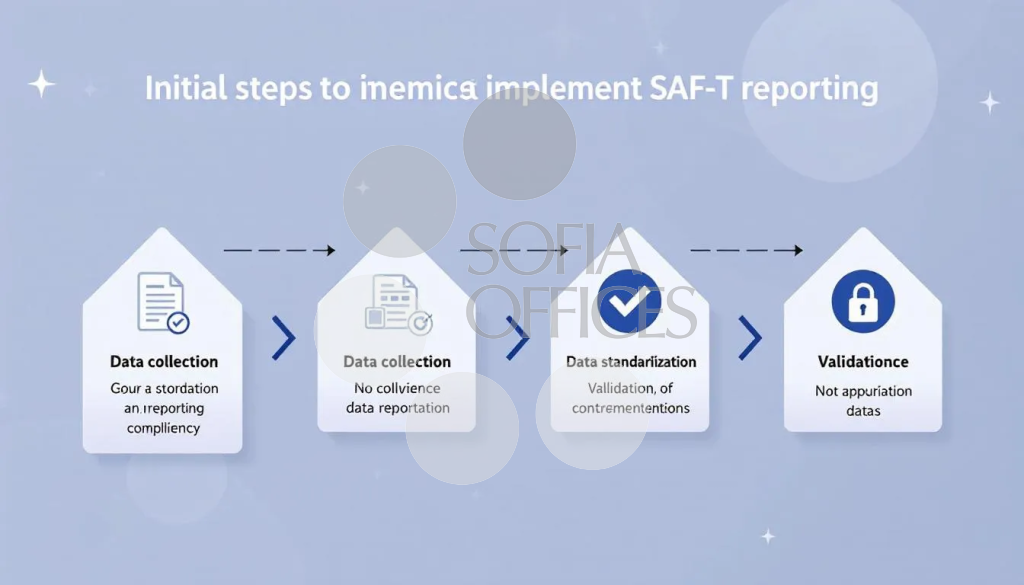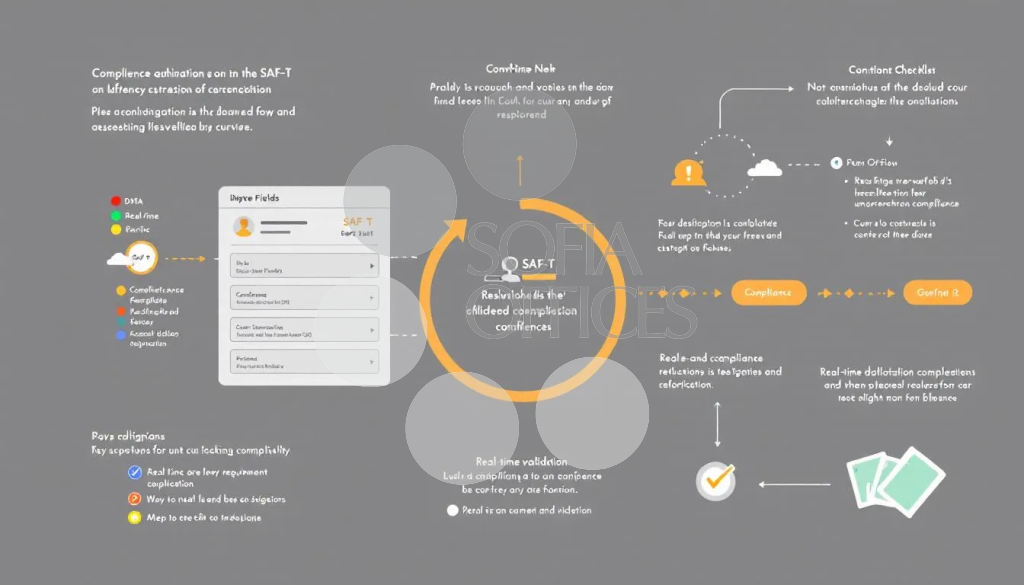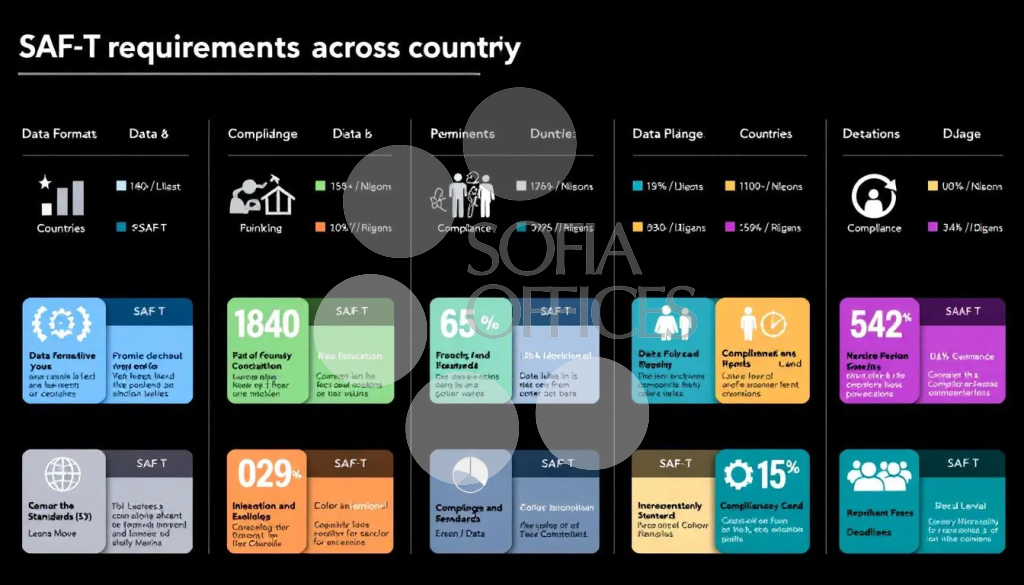SAF-T in Bulgaria: What Is SAF-T and Is It Required for Bulgaria
SAF-T (Standard Audit File for Tax) is an international electronic format for tax and accounting data, designed to enhance transparency and reduce fraud. In Bulgaria, the implementation of SAF-T is mandatory for all businesses starting January 2026, as confirmed by the Bulgarian National Revenue Agency. This article explores what SAF-T is, its implications for Bulgarian businesses, and how companies can prepare for compliance.
Key Takeaways
- SAF-T, the Standard Audit File for Tax, is mandatory for all Bulgarian businesses starting January 2026, aimed at improving tax compliance and transparency.
- Implementation will require businesses to update systems, train staff, and conduct test generations of SAF-T files to ensure compliance with new regulations.
- While SAF-T offers automation benefits that reduce administrative burdens, businesses must manage challenges such as data integration and software upgrades to successfully transition.
Understanding SAF-T and Its Necessity in Bulgaria
 An infographic illustrating what SAF-T is and its requirements in Bulgaria.
An infographic illustrating what SAF-T is and its requirements in Bulgaria.
SAF-T in Bulgaria: Overview and Business Impact
SAF-T stands for the Standard Audit File for Tax. It is an international electronic audit file format for tax and accounting, developed by the Organisation for Economic Co-operation and Development (OECD). Its primary aim is to reduce fraud, enable faster checks, and enhance transparency in tax reporting.
Through the adoption of SAF-T, Bulgaria aims to improve tax compliance, reduce administrative burdens, and streamline interactions between businesses and the National Revenue Agency (NRA). The NRA has confirmed a phased implementation of SAF-T reporting, offering grace periods to help businesses transition smoothly to the new system.
All businesses in Bulgaria will be required to generate SAF-T files in a standardized electronic format. This will facilitate tax audits, ensure compliance with the Accounting Act, and support the standardized communication of accounting data between businesses and tax authorities.
Target Audience and Unique Selling Points
The introduction of SAF-T in Bulgaria is set to impact all businesses, making the submission of SAF-T files mandatory. This requirement applies to everyone—from sole traders and micro-enterprises to medium and large corporations. As a result, all types of organizations must adapt to this new digital tax reporting standard.
The target audience for SAF-T includes:
- Sole traders
- Micro-enterprises
- Small and medium-sized enterprises (SMEs)
- Large corporations
One of the unique selling points of SAF-T is its capacity to automate much of the tax reporting process, significantly reducing administrative workload. By streamlining operations and enhancing transparency, SAF-T is positioned to make tax compliance simpler, more accurate, and more efficient for businesses of all sizes.
However, in the sections that follow, we will take a closer look at these claimed benefits and evaluate how well they hold up in real-world business scenarios.
Initial Steps to Implement SAF-T

A flowchart depicting the initial steps to implement SAF-T reporting.
SAF-T Reporting Rollout in Bulgaria:
SAF-T reporting in Bulgaria will be introduced gradually to allow businesses time to adjust and prepare:
- Mandatory monthly submissions will begin in January 2026.
- The phased approach is designed to help businesses of varying sizes adapt their systems ahead of the required compliance date.
- Businesses should conduct test generations of SAF-T files during the year prior to implementation to ensure smooth compliance.
Preparation for SAF-T Compliance
Successful implementation of SAF-T requires thorough and early preparation:
- System updates and staff training to meet new digital reporting requirements.
- Upgrading or acquiring accounting software capable of generating SAF-T files.
- Mandatory submission of SAF-T files through the National Revenue Agency’s digital portal, using a qualified electronic signature.
Early preparation is critical. Delaying system upgrades or staff training could lead to rushed implementation, technical issues, or non-compliance—each of which can result in penalties. Businesses are strongly encouraged to begin preparing now in order to make a smooth and compliant transition to digital tax reporting.
Safety Precautions and Testing
The SAF-T schema in Bulgaria requires businesses to provide detailed transactional and financial data in XML format to enhance tax collection and align with international standards, including the OECD-backed schema.
Internal validation tests are essential to ensure data accuracy prior to submission. Data quality management is crucial for guaranteeing that the SAF-T software accurately reflects the financial health of a business.
Automated testing techniques play a key role in identifying errors in SAF-T files quickly and effectively, helping to reduce the risk of submitting incorrect data.
Failure to follow safety precautions and conduct thorough testing for mandatory SAF-T reporting can result in severe penalties for non-compliance. Therefore, businesses must prioritize validation and testing processes as part of their SAF-T implementation strategy.
Design and User Interface of SAF-T Software

A screenshot of a user interface of SAF-T software showcasing its design and features.
The visual layout of SAF-T software plays a crucial role in user engagement and satisfaction. An intuitive design that emphasizes clarity and accessibility helps facilitate easier navigation and significantly reduces the learning curve.
Early users have reported that a well-designed interface enhances usability, making it easier to understand and interact with the software.
Feedback from initial adopters also highlights the benefits of a responsive design. Accessing and managing SAF-T reports across various devices improves flexibility and ensures a more convenient experience for users, regardless of their location or hardware.
Durability and Reliability
The SAF-T software employs advanced XML technology, enhancing data storage and transfer efficiency for tax audits. This ensures long-term data durability and reliability, even under regular use and comprehensive audit conditions.
Functionality and Usability
One of the key benefits of SAF-T is its ability to reduce administrative workload by automating various reporting processes. Automation streamlines tax compliance by minimizing document submission and supporting accurate, consolidated reporting.
The structured design of SAF-T allows for automatic data collection, reducing manual input and potential errors. This structured approach enhances transparency and supports better financial record-keeping and internal accounting workflows.
Overall, SAF-T improves tax compliance, accuracy, and efficiency—particularly for businesses aiming to streamline operations.
Real-Life Scenario Testing
The SAF-T system facilitates real-time data extraction and validation from ERP systems, consolidating reports into a single, standardized format. During real-world tests, businesses monitor and reconcile tax data to verify compliance.
With built-in error detection, the system flags and allows immediate correction of submission issues. This proactive approach ensures continued compliance during live data exchanges with tax authorities.
Challenges and Issues Encountered
Among the primary challenges of SAF-T implementation is the integration of data from fragmented IT systems, which complicates accurate and timely submissions. Additionally, many businesses face a skills gap, with insufficient staff training hampering effective use of SAF-T systems.
Another major hurdle is the cost and time investment needed for software upgrades and staff onboarding. These challenges are particularly pressing for SMEs and large enterprises with limited technical capacity or resources.
Successfully addressing these issues is essential for a smooth SAF-T transition across the Bulgarian business landscape.
Overall Assessment of SAF-T

A chart comparing SAF-T requirements across different countries.
SAF-T Implementation: Benefits and Challenges
The implementation of SAF-T aims to minimize errors in financial reporting and enhance the efficiency of tax audits. By aligning Bulgaria with international tax reporting standards, SAF-T adoption is expected to improve both tax compliance and data management capabilities.
Despite its clear benefits, SAF-T presents notable challenges—especially for small and medium-sized enterprises (SMEs) as well as large businesses. The complexity of implementation and the associated costs can create barriers to adoption.
In conclusion, SAF-T can be a worthwhile investment for businesses that are ready and equipped to handle its requirements. Its effectiveness depends largely on the size, technical readiness, and available resources of the organization.
Value for Money and Alternatives
Implementing SAF-T requires a significant financial investment, particularly when updating systems to be compatible with SAF-T reporting needs. However, collaboration with tax experts can provide guidance on maximizing the benefits of SAF-T, ensuring businesses leverage its potential for efficiency.
Alternatives to SAF-T exist, but they may not offer the same level of automation and efficiency. Businesses need to weigh the costs and benefits carefully to determine the best approach for their specific needs.
SAF-T offers a chance for businesses in Bulgaria to update their accounting methods. Modernization can lead to improved efficiency and accuracy. It is recommended that businesses start preparing for SAF-T implementation now and not wait until the last minute.
Incorporating user feedback into design updates is essential for improving the functionality of SAF-T software. Limited guidance from the tax authorities can result in confusion and difficulties for companies trying to implement SAF-T reporting correctly.
Summary
In summary, SAF-T is set to revolutionize tax reporting in Bulgaria by enhancing transparency, reducing administrative burdens, and improving tax compliance. While the implementation process may be challenging, the long-term benefits make it a worthwhile investment for businesses.
Embracing SAF-T and preparing early will ensure a smooth transition to this new digital tax reporting system. Businesses that adapt quickly will be well-positioned to reap the benefits and stay ahead in the competitive market.
Frequently Asked Questions
What is SAF-T?
SAF-T, or Standard Audit File for Tax, is an international electronic audit file created by the OECD to promote transparency and minimize tax fraud. Implementing SAF-T can significantly improve the efficiency of tax audits and compliance processes.
Is SAF-T mandatory for all businesses in Bulgaria?
Yes, the submission of SAF-T files will be mandatory for all Bulgarian businesses starting January 2026.
What are the initial steps for implementing SAF-T?
To implement SAF-T, businesses must first prepare their accounting software, generate test SAF-T files, and ensure staff are adequately trained to comply with the new requirements. These initial steps are crucial for a successful transition.
What are the challenges of implementing SAF-T?
Implementing SAF-T presents challenges such as integration of data from fragmented IT systems, the need to upgrade accounting software, and the requirement for adequate staff training. Addressing these issues is essential for successful implementation.
How can businesses maximize the benefits of SAF-T?
To maximize the benefits of SAF-T, businesses should collaborate with tax experts and initiate preparations early to ensure smooth implementation. This proactive approach facilitates compliance and enhances operational efficiency.